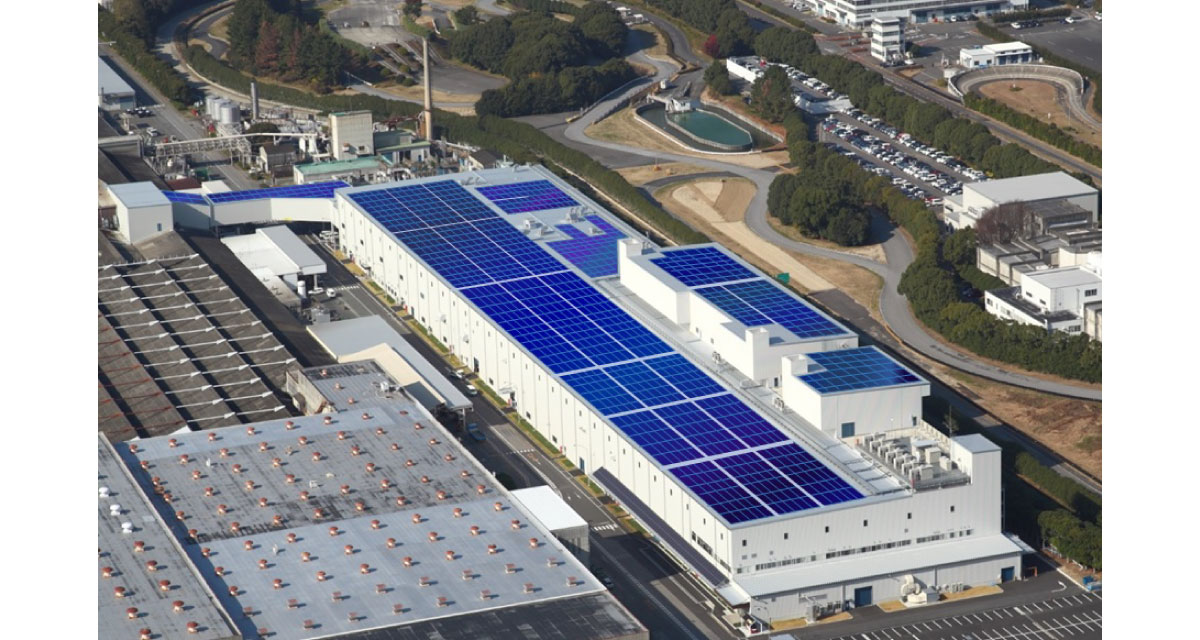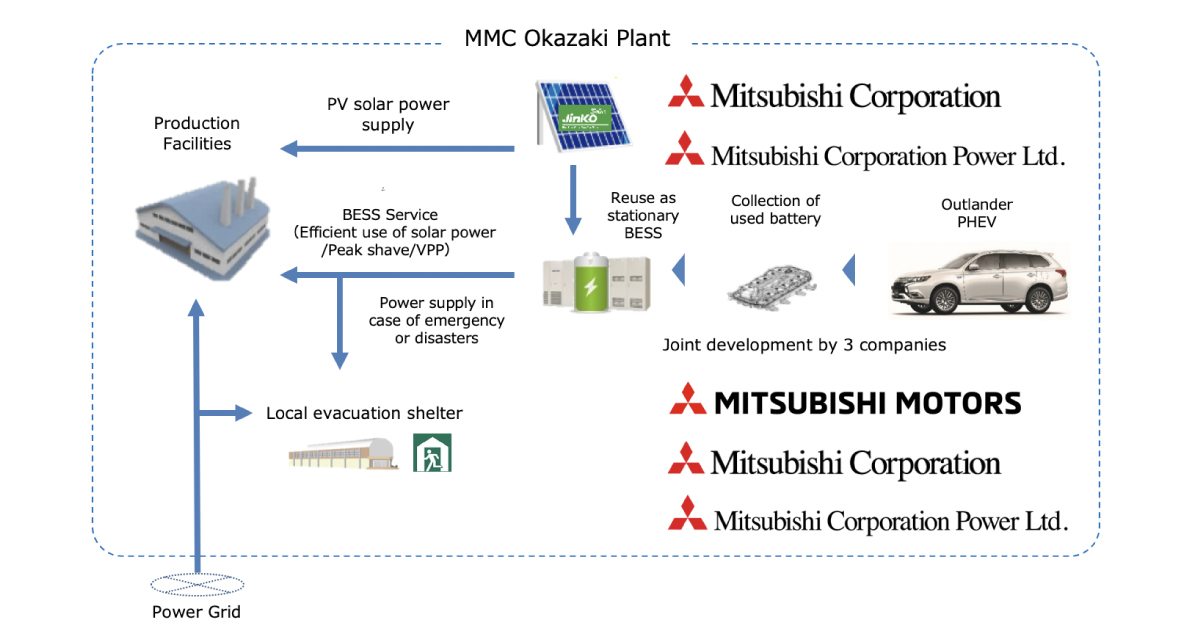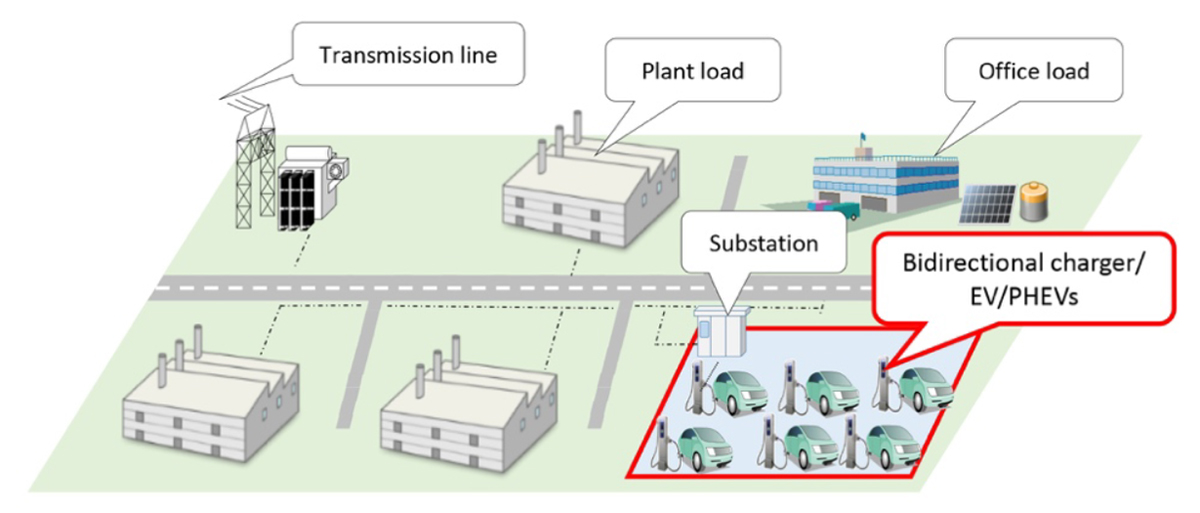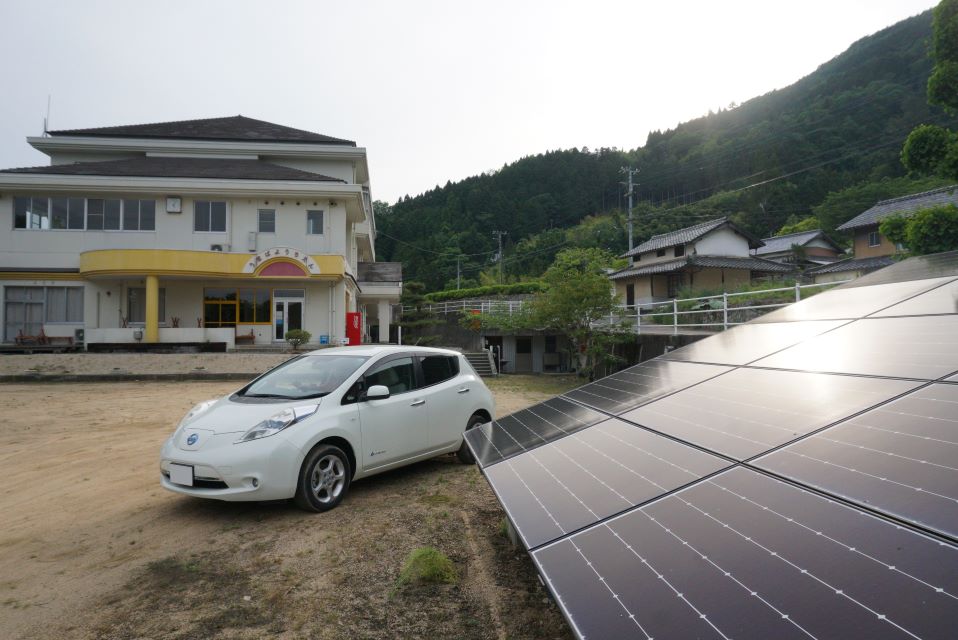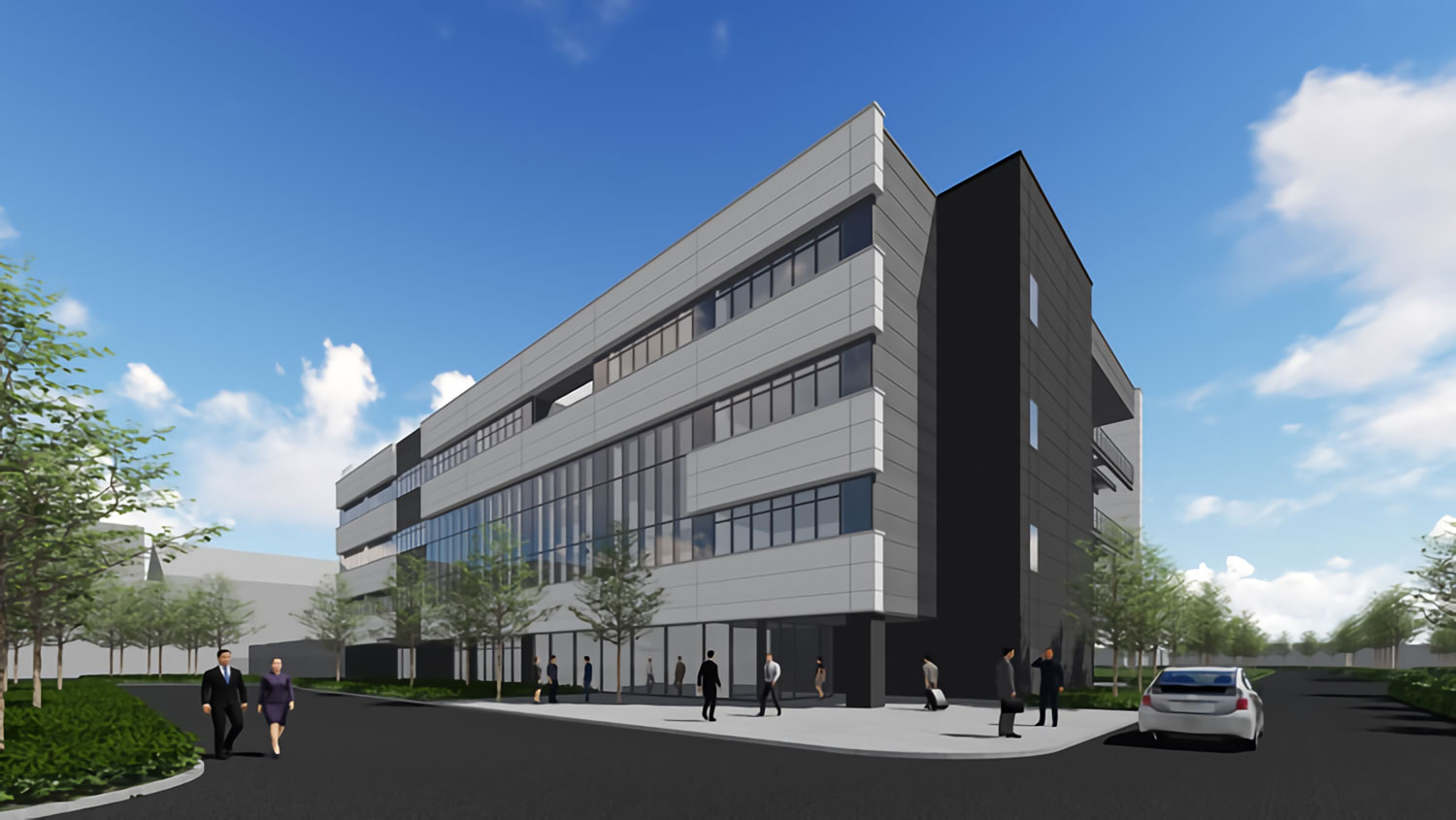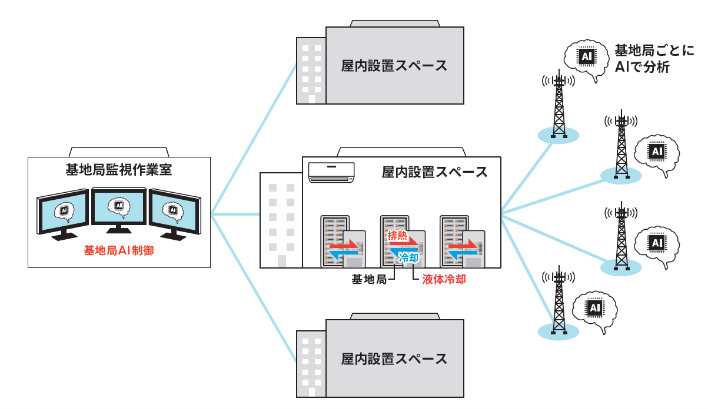Installation of a utility-scale rooftop photovoltaic system and battery energy storage system reusing EV batteries at Okazaki Plant in Japan
MITSUBISHI MOTORS CORPORATION
Outline
Mitsubishi Motors Corporation (MMC) installed a large-scale photovoltaic power generation facility at Okazaki Plant, and a storage system that uses reusing ‘Outlander PHEV” batteries has been constructed and demonstrated. Through these efforts, MMC will promote the shift to renewable energy, thereby reducing CO2 emissions and reducing peak power consumption at the plant. In addition, in the event of a power outage in the event of a disaster due to abnormal weather, etc., by supplying power from this facility to the gymnasium, which is an evacuation center in the neighboring area, we will contribute not only to the Okazaki Plant but also to local residents in responding to disasters.
Description
Mitsubishi Motors Corporation (MMC) announced today its decision to introduce an energy solution service provided by Mitsubishi Corporation (MC) and Mitsubishi Corporation Power Ltd. (MCP) at Okazaki Plant in Okazaki City, Aichi Prefecture, one of MMC's main electric vehicles production plants.
The energy solution service aims to reduce carbon emissions through the introduction of renewable energy. Specifically, MC and MCP will install a utility-scale rooftop photovoltaic (PV) system*1 and battery energy storage system (BESS)*2 composed of used batteries*3 from electric vehicles. Once completed, the installed capacity will be one of the largest among non-FIT*4 rooftop PV system projects in Japan.
Overview of the energy solution service:
The construction of the rooftop PV system began in October 2019 and the scheduled commercial operation will start in May 2020. MC and MCP will install an initial capacity of 3MW (annual power generation: 3GWh) and plan to gradually increase the capacity. Okazaki Plant will then use the power generated from the PV system, thereby contributing to a sustainable approach to the production of MMC's electric vehicles. The energy solution service thus enables MMC to use carbon-free electricity from the rooftop PV system without initial investment or possession of equipment, only by bearing electricity charges.
MC and MCP will install a battery energy storage system (BESS) and conduct a verification test in fiscal year 2020. The system is composed of used batteries from MMC's Outlander PHEVs, with a maximum capacity of 1MWh.
The PV system and BESS will reduce carbon emissions approximately by 1,600 tons a year and avoid peak demand of power consumption at Okazaki Plant. MC and MCP also plan to use BESS as a Virtual Power Plant*5 in the future, aiming to contribute to the stabilization of local power supply. In case of power outages in times of emergency or disasters, MMC can utilize BESS to supply power to the gymnasium at the Okazaki Plant, which is designated as Okazaki City's evacuation shelter. Through such measures, the energy solution service not only reduces carbon emissions at MMC's Okazaki Plant but also improves its capability to respond to disaster in Okazaki City.
As extreme weather events have become more frequent and there is a need to introduce climate change countermeasures at a global scale, reduction of carbon emissions in business activities by switching to renewable energy is an urgent issue for many companies. MMC, MC, and MCP endeavor to expand the use of renewable energy.
In 2009, MMC launched the world's first commercially mass-produced all-electric vehicle i-MiEV and opened the door to the electric vehicle market. Following to that, MMC introduced the DENDO drive station, its next generation car dealership where clients can experience the utilization of electric vehicle as a power source. Through these activities, MMC is working towards an environmental-friendly and disaster resilient "DENDO drive society" where power is utilized efficiently. Introduction of the energy solution service to Okazaki Plant is a step forward in both a transition to renewable energy and realization of "DENDO drive society".
MC and MCP intend to improve economic, environmental and social value through combining renewable energy and digital technology to contribute to a stable supply of electricity, and provide additional benefit to customers such as power supply and demand adjustment functions.
*1 BESS: Battery Energy Storage System
*2 PV solar modules are provided by Jinko Solar Japan K.K.
*3 Used drive lithium-ion batteries in Mitsubishi Outlander PHEV are manufactured by Lithium Energy Japan Corporation (Headquarters: Ritto city, Shiga Prefecture, CEO: Toshiyuki Aoyama) Lithium Energy Japan Corporation is a joint venture of MMC, MC and GS Yuasa Corporation.
*4 Non-FIT is a renewable power generation business that does not rely on the subsidized FIT (Feed-in Tariff) scheme. In the FIT scheme, the Japanese government guarantees the purchase of electricity generated by renewable sources by local utilities at a subsidized price. The utilities' purchasing cost is borne by all consumers of electricity in Japan, as purchasing costs are funded by levies added to the electricity bill.
*5 A Virtual Power Plant (VPP) is an advanced approach to utilizing distributed energy resources such as production facilities, in-house power generation facilities, BESS, lighting and HVAC facilities for power supply and demand balancing. A VPP remotely aggregates and controls such resources by advanced energy management technology utilizing IoT, functioning as if it were a single, independent power plant.
Partner(s)
Mitsubishi Corporation and Mitsubishi Corporation Power Ltd.
Supplementary information
■ Mitsubishi Motors’ press release
Installation of a utility-scale rooftop photovoltaic system and battery energy storage system reusing EV batteries at Okazaki Plant in Japan, 2019/12/11
https://www.mitsubishi-motors.com/en/newsrelease/2019/detail1239.html
Other Innovation Challenges
Construction of virtual power plant (VPP) using electric vehicles
MITSUBISHI MOTORS CORPORATION
Create a system that can quickly provide MMC electric vehicles to disaster-stricken areas in the event of a disaster
MITSUBISHI MOTORS CORPORATION
Similar Innovation Challenges
Accelarating the penetration of renewable energy resources with “Open Energy System”
Sony Group Corporation
Achieving net-zero carbon emissions from plant factories using full artificial lighting
Taikisha Ltd.
Advanced technology for buildings providing energy-saving and comfortable indoor environment (under Net Zero Energy condition)
Mitsubishi Electric Corporation
AI control reduces base station power consumption by up to 50%
KDDI CORPORATION



